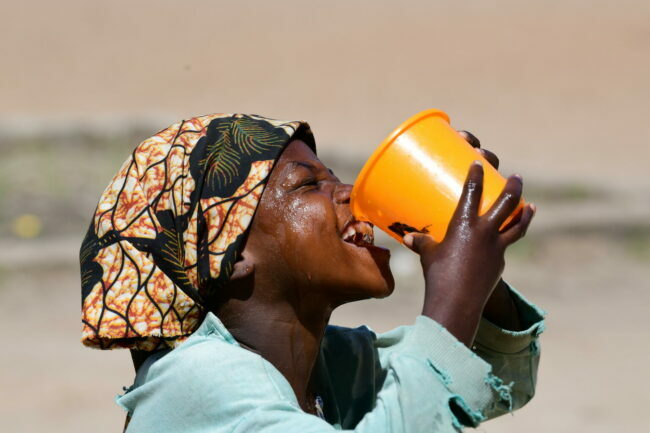
The Secretary General of the United Nations (UN), António Guterres, has announced a global call to action on extreme heat.
The call to action brings together diverse expertise and perspectives of various UN entities in a first-of-its-kind joint product, underscoring the multi-sectoral impacts of extreme heat.
Speaking at a press briefing on Thursday, Guterres said the call has four areas of focus, namely: caring for the vulnerable; protecting workers; boosting the resilience of economies and societies using data and science, and limiting temperature rise to 1.5°C by phasing out fossil fuels and scaling up investment in renewable energy.
“This has been a week of unprecedented heat. First, the European Union’s Copernicus Climate Change Service declared Sunday July 21 as the hottest day on record. Then on Monday, July 22, the mercury climbed even higher. And now we have just received preliminary data indicating that Tuesday, July 23 was in the same range.
“In other words, this past Sunday, Monday and Tuesday were the three hottest days on record,” Guterres said at the briefing.
“Earth is becoming hotter and more dangerous for everyone, everywhere. The world is experiencing the hottest temperatures on record, with billions of people facing extreme heat epidemics. Scorching conditions have killed 1,300 pilgrims during Haj; extreme heat is the new abnormal.
“But the good news is that there are solutions. The good news is that we can save lives and limit its impact. Today, we are launching a global call to action with four areas of focus.”
Guterres explained that the first is “caring for the most vulnerable. Crippling heat is everywhere – but it doesn’t affect everyone equally. Those most at risk when the mercury soars include the urban poor. Pregnant women. People with disabilities. Older people. The very young, the sick, the displaced, and the impoverished – who often live in substandard housing without access to cooling.
“Second, we must step up protections for workers. A new report from the International Labour Organization – being released today – warns that over 70 per cent of the global workforce – 2.4 billion people – are now at high risk of extreme heat.”
According to the ILO report, workers in Africa, the Arab states and Asia and the Pacific are most often exposed to excessive heat.
Specifically, for Africa, the report states that workplace exposures to excessive heat in Africa were above the global average, affecting 92.9 per cent of the workforce.
It added that the African region has the greatest proportion of occupational injuries attributable to excessive heat, accounting for 7.2 percent of all occupational injuries. The report notes that as daily temperatures rise above 34°C – or 93.2°F – labour productivity drops by 50 percent. In addition, heat stress at work is projected to cost the global economy $2.4 trillion by 2030. Up from $280 billion in the mid-1990s.
“We need measures to protect workers, grounded in human rights,” the UN Secretary-General remarked.
“Third, we must massively boost the resilience of economies and societies using data and science,” he said.
For the final focus area, Guteress called for an end to a “disease” he called “addiction to fossil fuels” and “climate inaction.”
He said that “All countries must deliver by next year nationally determined contributions – or national climate action plans – aligned to limiting global temperature rise to 1.5 degrees Celsius.
I must call out the flood of fossil fuel expansion we are seeing in some of the world’s wealthiest countries. In signing such a surge of new oil and gas licenses, they are signing away our future. The leadership of those with the greatest capabilities and capacities is essential. Countries must phase out fossil fuels – fast and fairly. They must end new coal projects. Climate action also requires finance action.”
The United Nations system said it is already supporting countries in reducing extreme heat risks and pursuing the SDGs, including with specific actions such as developing heat action plans, heat early warning systems and national sustainable cooling plans, and providing humanitarian assistance and specific guidance on protecting the most vulnerable communities.
However, these resources need to be coordinated and connected to provide an integrated approach to extreme heat for countries and communities, supporting the strengthening of global action on extreme heat.
ALSO READ THESE TOP STORIES FROM NIGERIAN TRIBUNE










